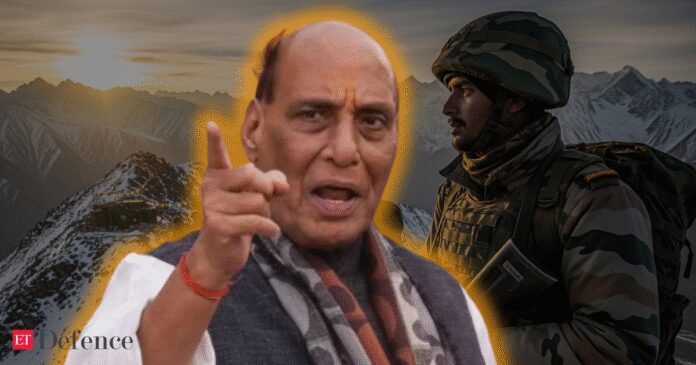Speaking at the Ran Samwad conclave in Mhow on Wednesday, Singh drew lessons from both Operation Sindoor and the ongoing Russia-Ukraine war, highlighting the unpredictable nature of today’s geopolitical landscape.
India does not seek war, but will defend its land
“India has never been a nation that seeks war. We have never initiated aggression against anyone. However, the present geopolitical reality is quite different. Even though we do not harbour any aggressive intent, if someone challenges us, it becomes imperative that we respond with strength,” Singh said.
He emphasised that while India does not covet the land of others, it is ready to go to any extent to protect its own.
Technology will define the future battlefield
Calling Operation Sindoor a “striking demonstration” of technology-driven warfare and a showcase of indigenous weapon success, Singh underlined that future wars will be shaped not just by soldiers or weapon stockpiles but by emerging technologies.
From cyberwarfare and artificial intelligence to drones, satellite-based surveillance, and real-time intelligence, these tools, he said, are redefining modern-day combat.“Technology is advancing at such a pace that by the time we fully grasp one innovation, another emerges to completely alter the course of warfare,” he remarked, stressing the need for constant innovation and adaptability.
Preparing for the unpredictable
With conflicts becoming harder to predict in both scale and duration, Singh urged continuous strengthening of India’s defence industry.
“If any war stretches for two months, four months, a year, two years, even five years, then we should be fully prepared. We must ensure our surge capacity is sufficient,” he said.
While India has made notable progress, he admitted there is still “a long way ahead” in terms of self-reliance and resilience.
Beyond defence: Strategy and diplomacy
Singh also called for a broader approach to warfare, pointing out that future conflicts will not just be fought with weapons but will also hinge on intelligence, technology, economy, and diplomacy.
“What we require today is not just defensive preparedness but also a proactive strategy. The nation that masters the triangle of technology, strategy, and adaptability will emerge as the true global power,” he concluded.
Inputs from TOI

